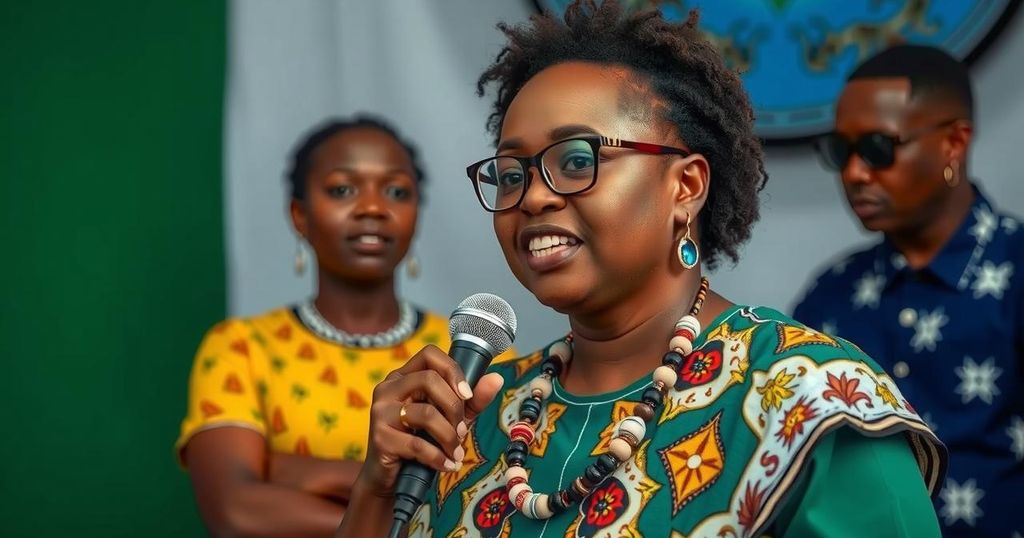Ghana’s Upcoming Elections: An Overview of Candidates and Key Issues
Ghana will hold its ninth general election on December 7, with Vice-President Mahamudu Bawumia and former President John Mahama as the main candidates. The elections encompass both presidential and parliamentary contests, critical economic concerns dominate voter sentiments, and unresolved environmental issues pose significant challenges. The electoral commission is expected to announce results by December 10, maintaining Ghana’s tradition of transparent and peaceful elections.
Ghana is set to hold its ninth general election on December 7, during which nearly 18.8 million registered voters will cast their ballots. With the current president, Nana Akufo-Addo, concluding his final term, the race predominantly features two main candidates: Vice-President Mahamudu Bawumia of the New Patriotic Party (NPP) and former president John Mahama of the National Democratic Congress (NDC). Both candidates bring distinct backgrounds and challenges to the forefront as Ghanaians weigh critical issues such as the economy, inflation, unemployment, and environmental concerns related to illegal gold mining.
Mahamudu Bawumia, 61, is projected to become Ghana’s first Muslim president if elected. His tenure as vice-president saw a dramatic economic downturn, which has attracted significant criticism. Conversely, John Mahama, 65, seeks to regain the presidency he lost in 2016, promising a substantial economic overhaul amid a climate of rising living costs and poverty. While 12 candidates are contending for the presidency, historically, only candidates from the NDC or the NPP have secured victory since the reintroduction of multiparty politics in the early 1990s.
The upcoming elections will concurrently elect Members of Parliament for 275 constituencies. Voters will determine their parliamentary representatives who will engage on policies affecting Ghana’s governance. The elections employ a first-past-the-post system for parliamentary candidates while necessitating a majority for a presidential win; otherwise, a runoff will ensue between the top two candidates.
Key issues influencing voter sentiments include the beleaguered economy plagued by exorbitant inflation rates, which recently peaked at 54%. This inflation has contributed to severe poverty, affecting nearly 850,000 individuals, in addition to persistently high youth unemployment rates. Environmental ramifications from illegal gold mining practices also provoke significant public concern, with both leading parties endorsing decisive actions regarding regulations and operations within the gold mining sector.
Voting will occur at appointed polling stations, where identities will be authenticated, and ballot papers will be issued. The election commission is expected to declare results by December 10, continuing a history of transparent electoral processes throughout Ghana’s political history, marked by competitive yet peaceful transitions of power.
This article centers on the upcoming general elections in Ghana scheduled for December 7, which follow a rich history of democratic processes since the reintroduction of multiparty politics in the 1990s. The article outlines the political landscape as shaped by key figures: the incumbent vice-president Mahamudu Bawumia and former president John Mahama. It emphasizes prevalent societal issues, such as economic struggles, inflation, and environmental concerns, which shape the electorate’s decisions. The electoral system, characterized by its first-past-the-post structure for parliamentary seats and the requirement for a majority in presidential voting, further frames the context of the electoral process.
The upcoming Ghanaian elections mark a pivotal moment for the nation as it seeks to navigate pressing economic challenges and evolving political dynamics. With key candidates vying for leadership amidst rampant inflation and social unrest, the election not only determines the presidency but also signals the direction of policy addressing unemployment and environmental issues. As Ghanaians prepare to cast their votes, the historical precedence of peaceful transitions of power remains a hallmark of their democracy, with anticipated results set to emerge shortly after polling day.
Original Source: www.bbc.co.uk




Post Comment